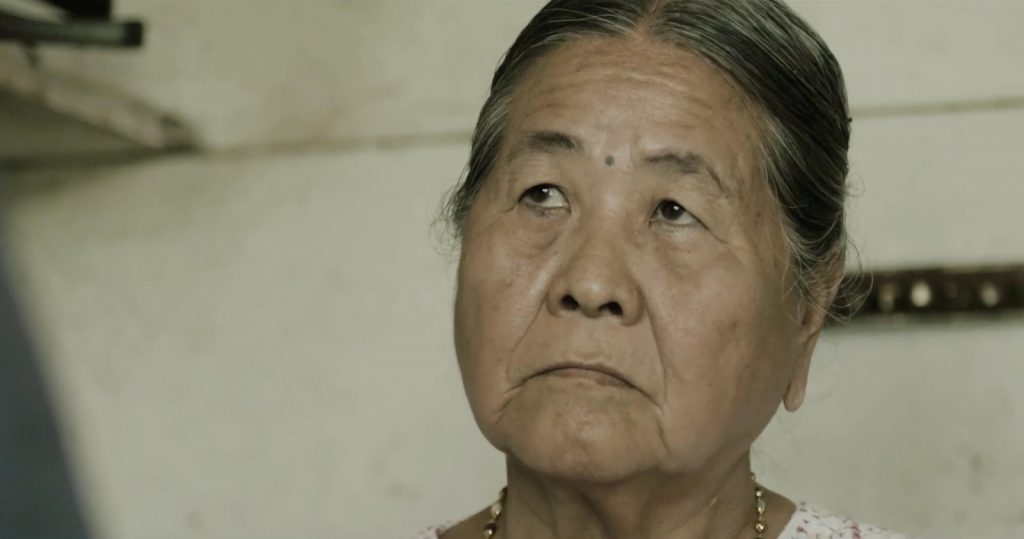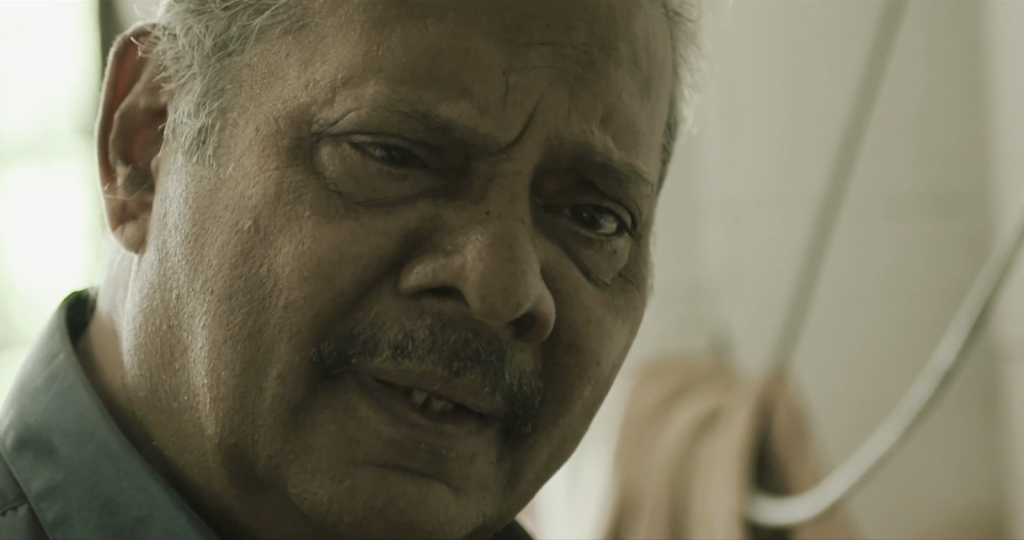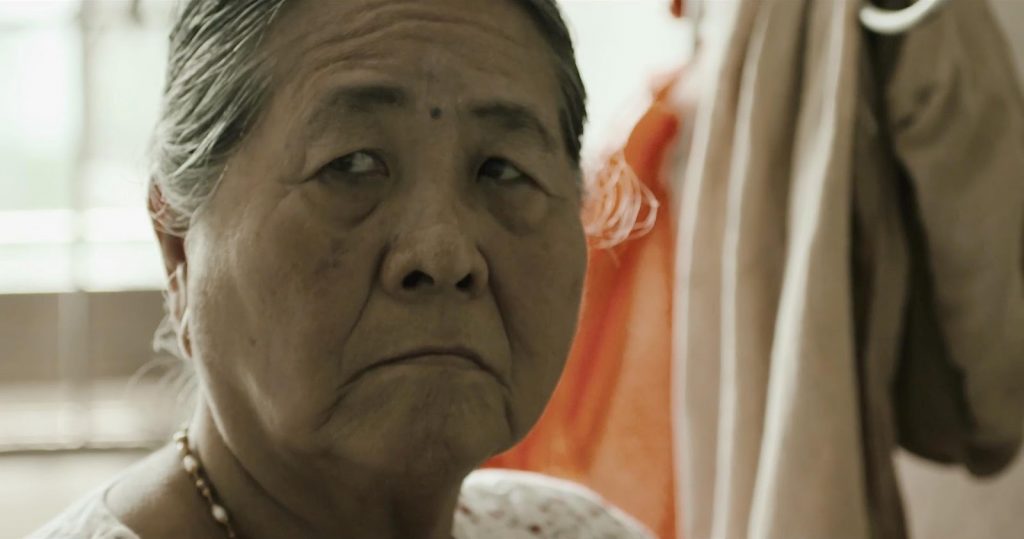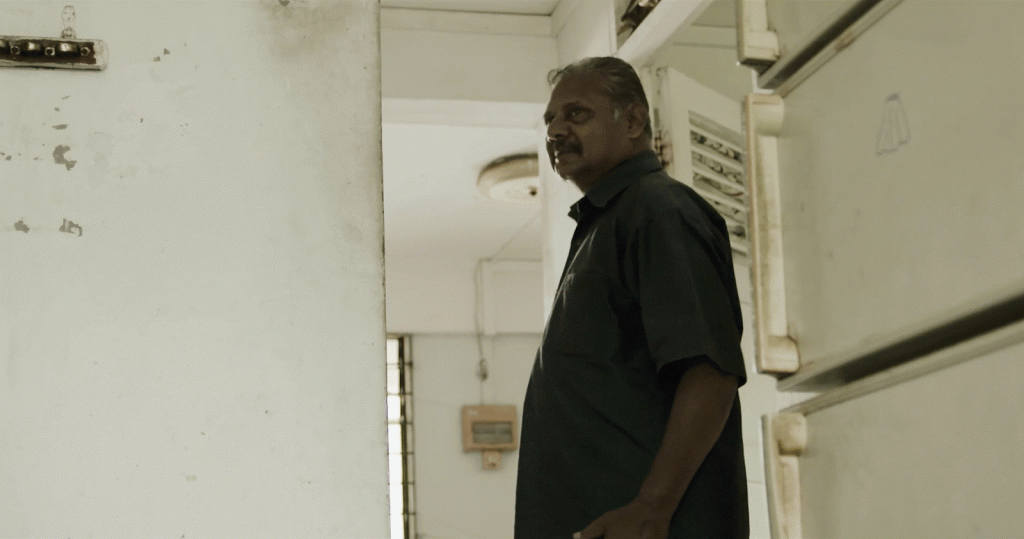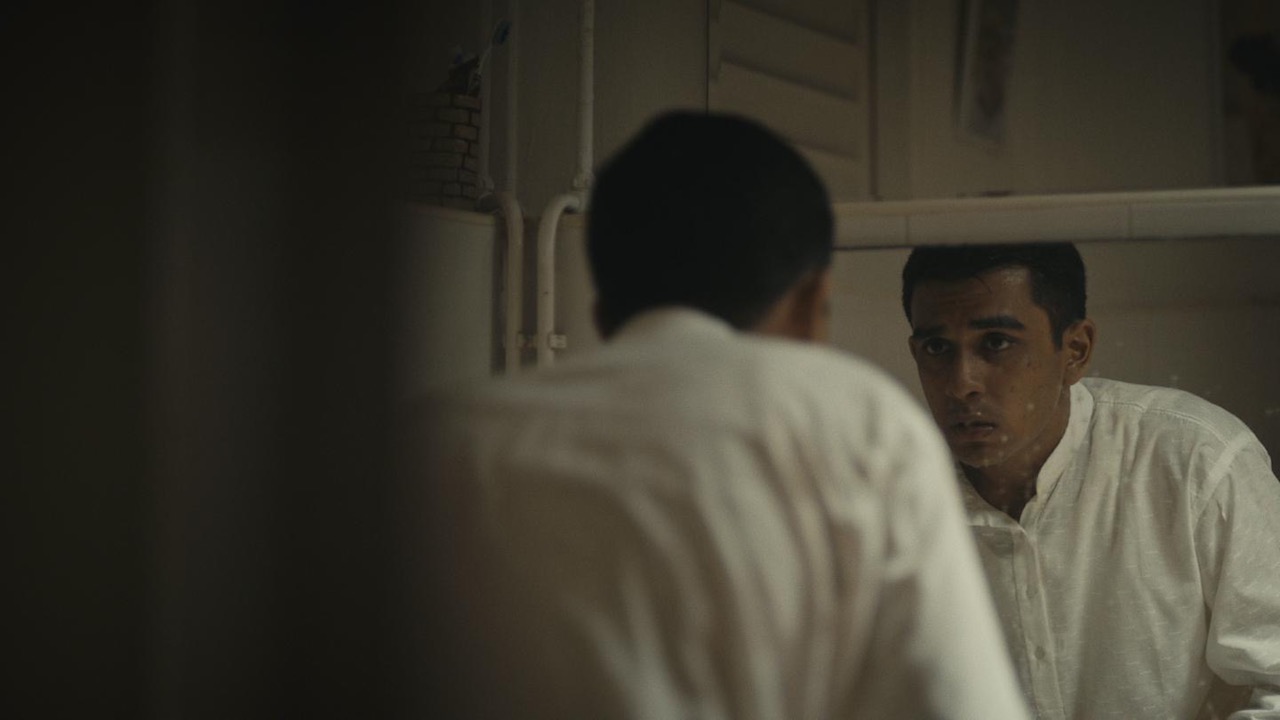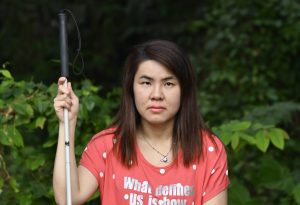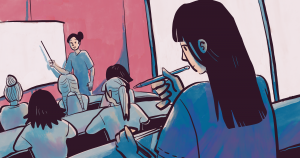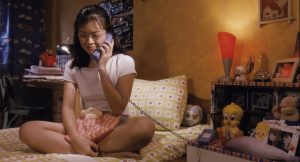Since the age of 14, the versatile filmmaker has continually honed his craft by directing TV shows, commercials, and independent short films such as the award-winning Ren Shao, which won Best Short at the ASEAN International Film Festival and Awards. Aravind has more than 25 short films, as well as Tanglin, Singapore’s first English daily long-form drama, under his directing belt.
Aravind’s films are subtle, honest stories of everyday people. Which is not to say that his films are not fervently affective.
The emotions of his characters are not just communicated through their words and actions, but also through the construction of their physical spaces. In his 2017 short film Angel, Aravind transplants the viewer into the state of mind of a family dealing with the sudden loss of their kin. With careful composition, he captures feelings of isolation, loss, turmoil, helplessness, rebellion, and love.
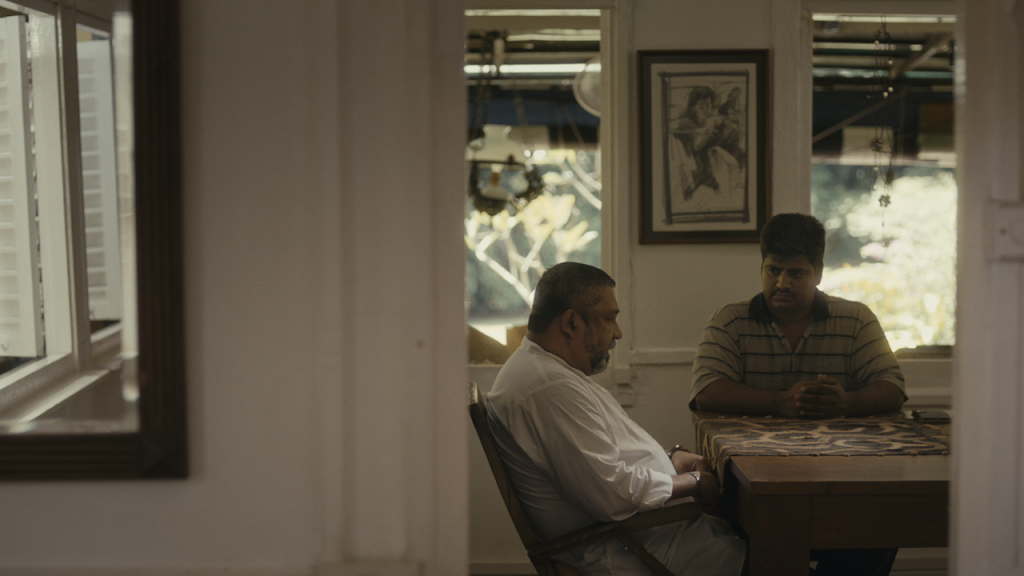
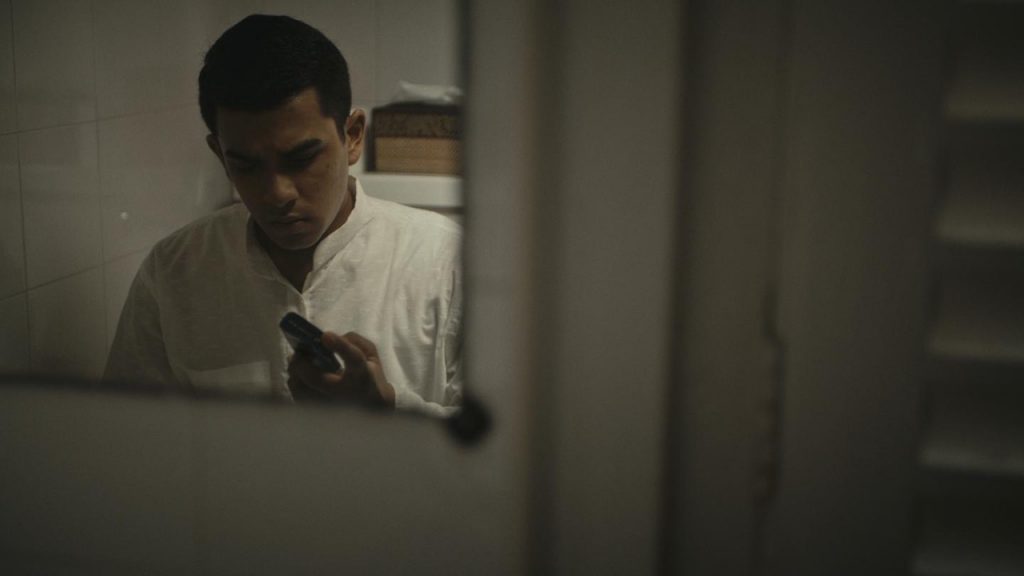
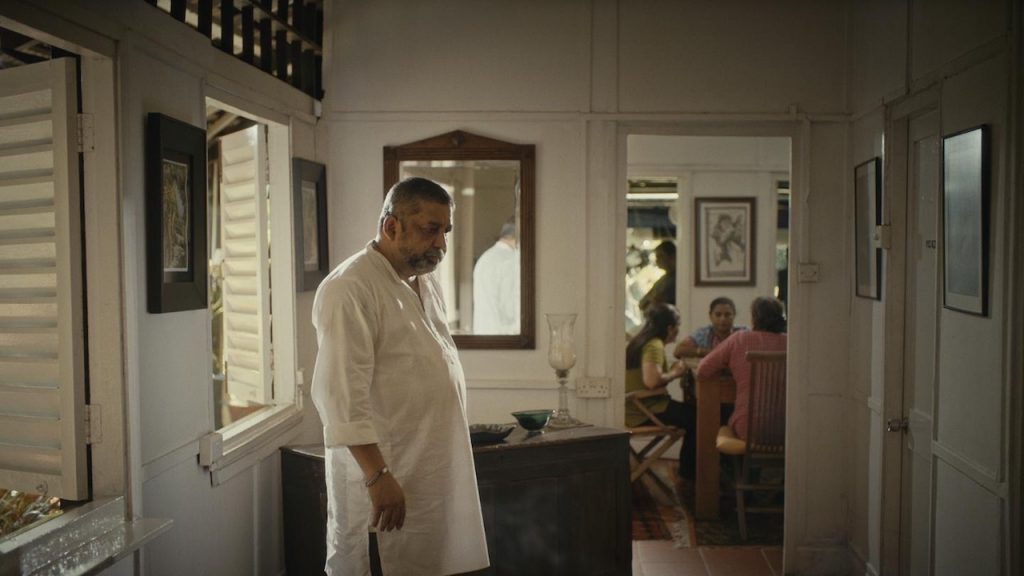
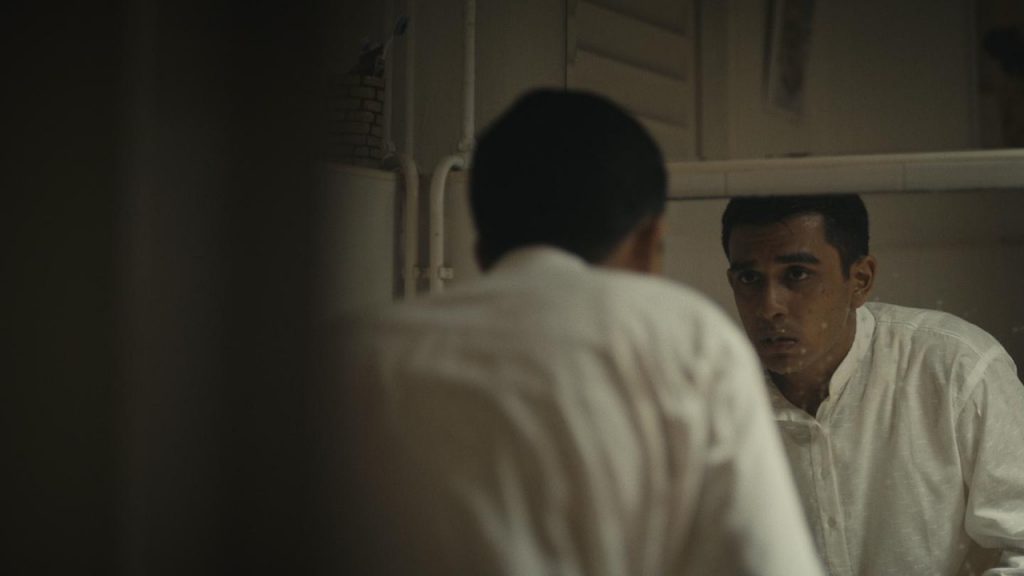
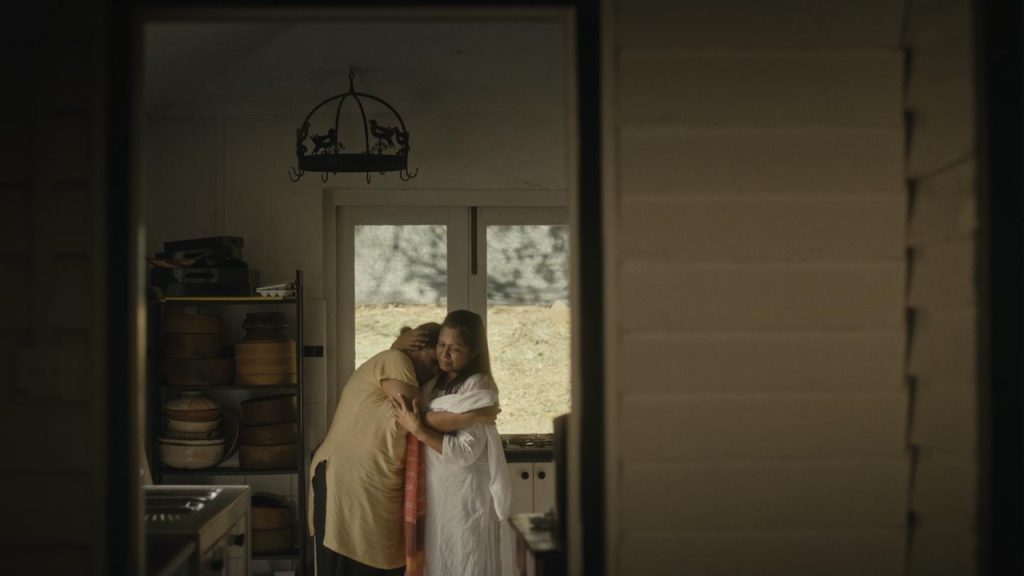
Similarly in Vote (2015), Aravind imbues his characters with their own specific wants and needs.
The film throws the viewer into the center of a heated debate between two friends, Pushpa and Rajan. Rajan wishes for Pushpa to vote in favour of an en-bloc exercise to fulfil the desires of his son. Pushpa, however, has no inclination to leave her comfort zone.
Their argument about her personal space manifests in the visual language of the film; as Rajan intrudes upon Pushpa’s own ideals, we see the framing shift subtly but powerfully. Throughout the characters’ conversations, Aravind presents the increasing distance between the two lifelong friends. Rajan appears more and more closed in by the walls and doors of Pushpa’s house, creating a frame within the camera’s frame, further confining him. The reverse shots of Rajan also change from an eye-level close-up to a low-angle medium shot, capturing a sense of distance that is both physical and emotional before Rajan finally leaves Pushpa’s home.
